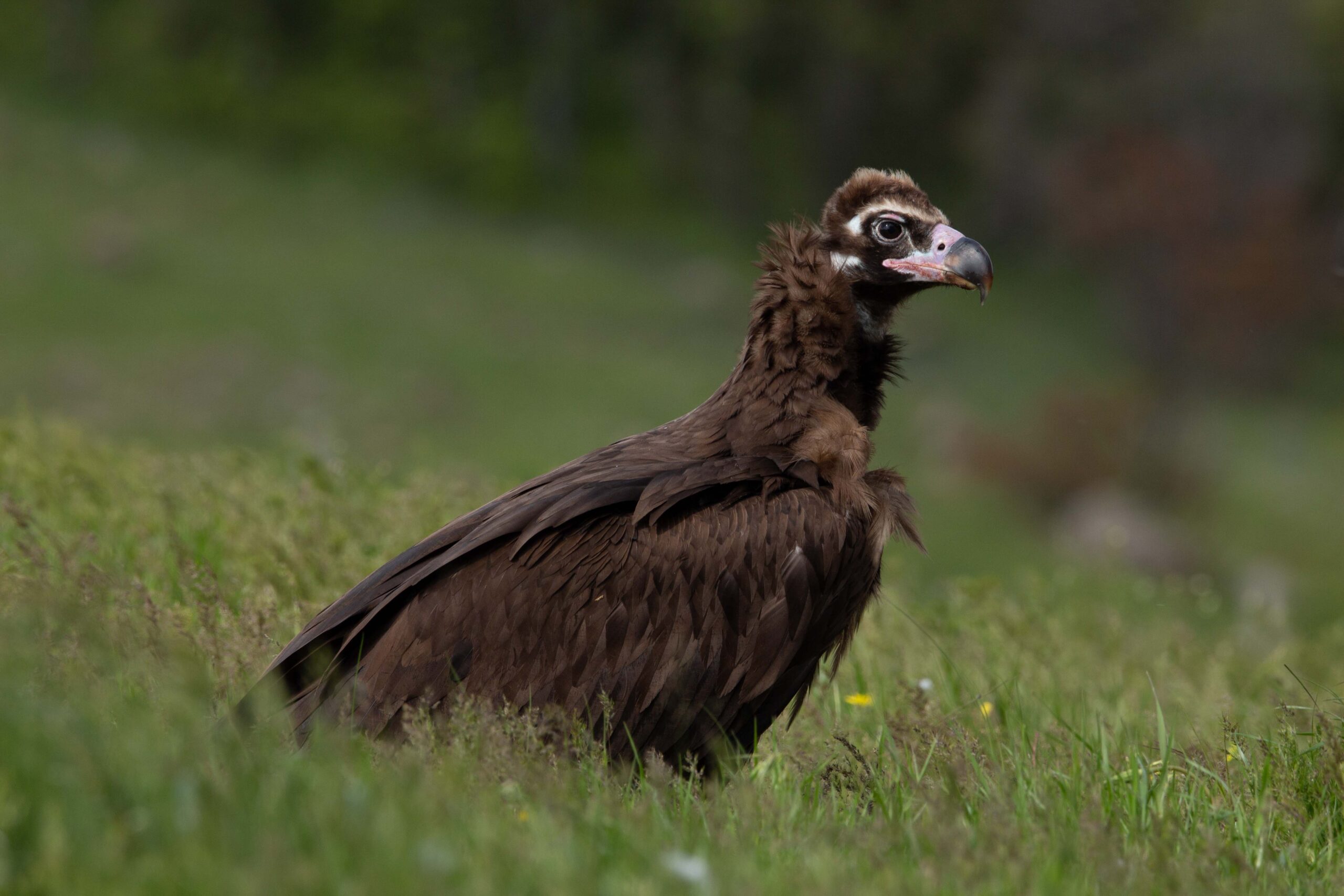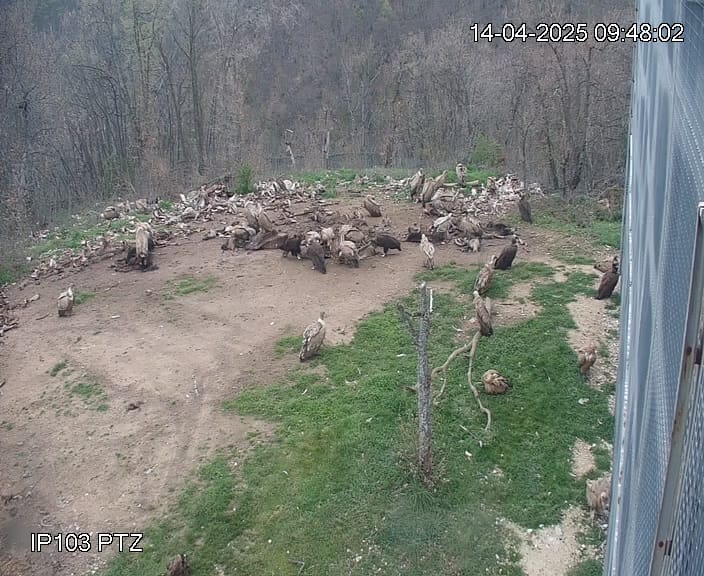A significant milestone in the efforts to restore the Cinereous vulture in the Rhodopes was achieved earlier with the release of a third group of birds in the Eastern Rhodopes. The teams of the Bulgarian Society for the Protection of Birds (BSPB) and the Rewilding Rhodopes Foundation successfully released new birds, bringing the total number of Cinereous vultures released to 23.

Before being released, the birds undergo a thorough process of examinations, tagging, and deworming. Each one is equipped with a GPS/GSM transmitter and rings, allowing experts to monitor their adaptation in real time. The vultures spend half a year in an acclimatization aviary between Madzharovo and Ivaylovgrad. During this period, they become accustomed to the environment and conditions of the wild nature in the Eastern Rhodopes.
The release is carried out gradually and without stress for the birds—the aviary is opened slowly, and food is provided nearby to assist with their initial adjustment. The BSPB team monitors the birds’ behavior through cameras and direct observation to ensure their successful adaptation. “The adaptation process influences the survival of the birds and their ability to adjust after being released into the wild. For this reason, the specific care the vultures receive before release is crucial for them,” shared Dobromir Dobrev, project coordinator from BSPB.
 The Cinereous vulture is one of the rarest birds in the Balkans. Today, the only natural colony in the region is located in Dadia National Park in Greece, but its small size—around 35 pairs—limits the species’ natural expansion. The good news is that in the past two years, new pairs have been forming from birds released in recent years. In February, a remarkable moment for the Bulgarian part of the Rhodopes occurred. After 31 years, four newly formed pairs of black vultures once again occupied nests in this part of the mountain.
The Cinereous vulture is one of the rarest birds in the Balkans. Today, the only natural colony in the region is located in Dadia National Park in Greece, but its small size—around 35 pairs—limits the species’ natural expansion. The good news is that in the past two years, new pairs have been forming from birds released in recent years. In February, a remarkable moment for the Bulgarian part of the Rhodopes occurred. After 31 years, four newly formed pairs of black vultures once again occupied nests in this part of the mountain.
The reintroduction initiative for the black vulture in the Rhodopes began in 2022 with the arrival of the first birds from Spain, followed by new groups in 2023 and 2024. The goal is to establish a stable colony in the Bulgarian part of the Rhodopes, which will support the recovery of the species in the Balkans. The project also promotes the exchange of birds with the existing colony in Greece and the reintroduced vultures in the Balkan Mountains.
The reintroduction activities are part of the LIFE project, ” Restoration of the Cinereous vulture population and trophic chain in the Bulgarian-Greek cross-border region“,implemented on the Bulgarian side by the Bulgarian Society for the Protection of Birds in collaboration with Rewilding Rhodopes Foundation. The project (No. 101148254 — LIFE23-NAT-BG-LIFE Rhodope Vulture) is co-financed by the European Union’s LIFE program and Rewilding Europe